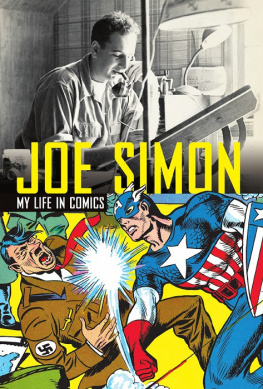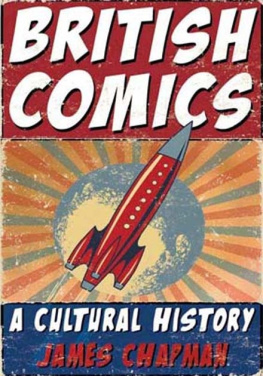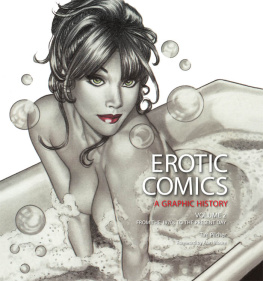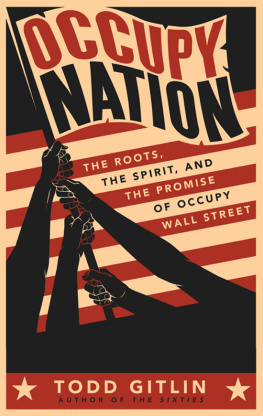
Copyright 2012 by Stephanie McMillan
A Seven Stories Press First Edition
All rights reserved. No part of this book may be reproduced, stored in a retrieval system, or transmitted in any form or by any means, including mechanical, electronic, photocopying, recording, or otherwise, without the prior written permission of the publisher.
Seven Stories Press
140 Watts Street
New York, NY 10013
www.sevenstories.com
College professors may order examination copies of Seven Stories Press titles for a free six-month trial period. To order, visit
http://www.sevenstories.com/textbook
or send a fax on school letterhead to (212) 226-1411.
Library of Congress Cataloging-in-Publication Data
McMillan, Stephanie, 1965
The beginning of the American fall : a comics journalist inside the Occupy Wall Street Movement / Stephanie McMillan.
p. cm.
ISBN 978-1-60980-452-7 (pbk.)
1. Occupy Wall Street (Movement)Comic books, strips, etc.
2. Protest movementsUnited StatesHistory21st centuryComic books, strips, etc. 3. Political participationUnited StatesHistory21st centuryComic books, strips, etc. 4. CountercultureUnited StatesHistory21st centuryComic books, strips, etc. I. Title.
HN59.2.M426 2012
303.48 ' 4dc23
2012029865
book design by stephanie mcmillan
printed in the united states of america
A Note to Pirates
Your goals may be noble: everything should be free, including information. Liberating state secrets is a righteous act. But liberating information from the enemy isnt the same as taking content from your friends and allies, especially while we still live in an economy that forces us to pay for food and shelter. If we dont find ways to support our movements artists, musicians, writers, and independent publishers, then soon we wont have any.

Contents
How I Became Politicized
W hen I was in high school in South Florida, in the early 1980s, I was persuaded to read a book called Fate of the Earth , by Jonathan Schell. I opened it very reluctantly, not wanting to know the reality of the destructive power and impulses of the system I lived in (which I didnt understand as a system then). Some part of me realized, deep down, that if I knew the truth, then Id have to do something about it, and that might divert the course of my life, which was on track to be fairly safe and comfortable.
Anyway, someone bugged me until finally I agreed to read it. It laid out, in gruesome detail, the dangers of nuclear war. The idea that governments would put all of humanityas well as the planets very ability to support lifeat risk this way was horrifying, a nightmare. I knew I would have to do whatever I could to stop it.
So I did the usual things that people do when they begin to act in the political realm: I looked for people who were already doing something to tell me what to do. I read articles and attended lectures, and learned a lot about the problem. Whenever they would get to the part about what to do, though, it was always the same list: Write a letter to the editor. Write to government representatives. Vote in elections.
Even being the wide-eyed newbie that I was, I understood immediately that these things would never work. I kept asking people: What should we do, for real? Is that all there is? Yes, this is all there is, they would say, handing me a pen to sign another petition.
Until one day when I attended a film showing at a Miami library, after which an activist gave the same old droning speech about pressuring government officials and so on. My friend wandered outside, and after a while returned. He whispered, This is boring. I agreed. Theres a guy outside in a purple hat, he continued. Hes talking about revolution. Lets go listen to him.
We did, and my life changed. Until someone had pointed out the possibility of revolution in the United States, the concept had never occurred to me. It was, to me, a purely historical phenomenon, safe in the distant past; I had never imagined it as part of the possible future. And then, suddenly there it was. It felt like lightning, this new idea. The answer!
I bought a copy of the newspaper he offered, the Revolutionary Worker , and wrestled my way through dense articles with phrases like proletarian dictatorship and bourgeois democracy and social imperialism ... having no clue what they meant.
It was the beginning of a process that never ends.
A Snapshot: Ten Years Later
In the early 1990s, the Miami group US Hands Off the Haitian People Coalition worked to oppose the US imperialist military and economic domination of Haiti, plus the detention and forced repatriation of emigrants. Eventually it morphed into a new group: One Struggle, widening its focus to address imperialism as a whole. After a couple of years it broke apart and we went our separate ways. I moved to New York to work with the October 22nd Coalition to Stop Police Brutality.
And Now: Thirty Years Later
By October 2010, Id been back in South Florida for quite a while. Almost exactly a year before Stop the Machine and Occupy Wall Street began, a few of us former One Struggle members talked about whether or not it was time to reactivate it after twenty years of dormancy.
Uprisings were occuring in North Africa and Europe. We sensed storms on the horizon even in the US, and felt a strong urge to prepare to the extent of our ability, to try to build the kind of organizations capable of riding new, huge, historical shifts. The local activist scene that had limped along through the multi-decade Great Political Ebb wasnt going to cut it. It was fragmented, issue-oriented, and dominated by liberal and reformist ideology. Something different was required.
We searched online and at events to locate like-minded people, and had one-on-one discussions with them to determine our level of political unity. We started holding weekly meetings until we were cohesive enough to call ourselves a group and could present compelling enough events to attract fresh forces. At this writing we have a fairly solid collective of about fifteen members.
I have a tendency to be overly optimistic. So when I brought up Stop the Machine in a meeting, I downplayed it a little to compensate for possibly excessive enthusiasm. It might be a waste of time, I said. But who knows, it might turn into something. A couple OSers rolled their eyes. Itll be the same old kind of protest, said one skeptic. An empty gesture.
But if the revolution starts, someone else said, let us know. Well come up and join you.






Next page












